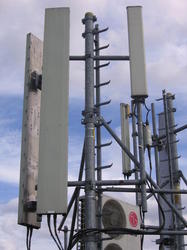| Baseline technology | 2009-06-16 00:39 10 comments |
 by Flemming Funch by Flemming FunchWhat is the baseline of technology that can be available to anybody? How can the bar be raised, and secured? There is a lot of power in being the authority who decides whether people are allowed to have access to a technology or not. A lot of the technology we're taking for granted is very fragile and can easily be turned off. The government of Iran turned off the SMS network during their phoney elections, because they knew that the opposition would use SMS to organize. How can we organize stuff, knowledge and technology and communication in particular, so that it can't be shut down at the whim of people in power? We'd like to imagine that the Internet is a thing like that, which routes around damage and which can't be shut down. Which would be nice, but it probably isn't true. They can filter all internet traffic for all of China. They can leave it out altogether in North Korea. And a few backbone providers control the big pipes that it all goes through. None of it would work without the root name servers and the domain registries. It is very far from the grassroots thing we somehow imagine it to be. But one could as well invent an internet that actually really couldn't be shut down. Something with a mesh network over radio, something that people could solder together even if their government didn't like it. It goes through all aspects of our society. We're extremely dependent on stuff that is incredibly centralized and outside our sphere of influence. Most of the elements of our civilized existence could be yanked away in anything from seconds to days. By governments or by catastrophe or by business interests. I'd prefer for our civilization to be more resilient than that. Which it would be if most of us would be able to jumpstart important elements of our existence, in case they are missing one day, for whatever reason. Food - what would you do if your local supermarket didn't get any more deliveries, or they no longer accepted your plastic card to pay for it? It is quite easy to grow food yourself, but are you? Communication - if you get locked out of the internet or the phone network, because you downloaded a pirated movie 3 times, or because your government decided it is bad for your morals, or because of some systemic failure - what would you do? Wait until it came back? That's a bit pathetic. Manufacturing - what could you manufacture if it somehow wasn't available in the store any longer? What could you manufacture if you were stuck on a desert island? Shockingly little. But if you were better educated, you'd get much further. Buckminster Fuller defined wealth as the number of days forward that you could sustain a certain group of people. A zillion dollars does you no good if the stores and banks are closed. The real wealth is that you can make stuff that sustains life, without needing permission from anyone. Previously: Immaculate Telegraphy |